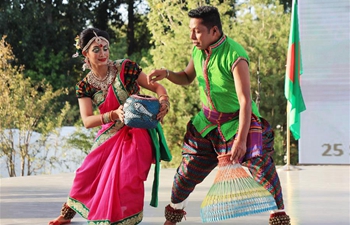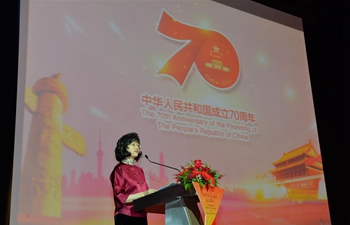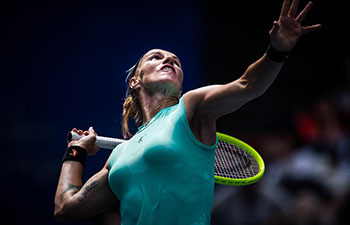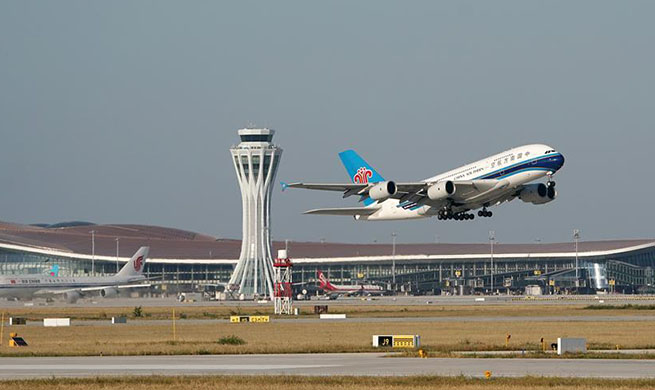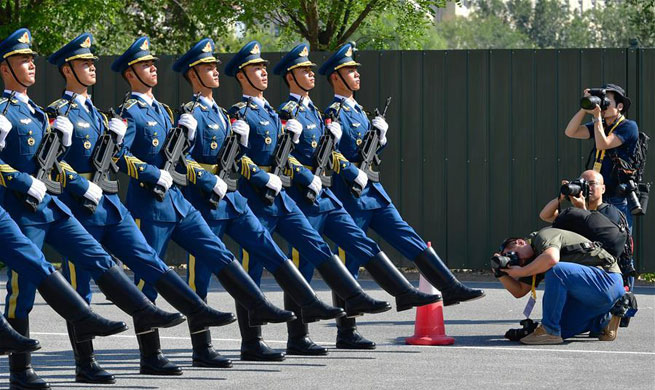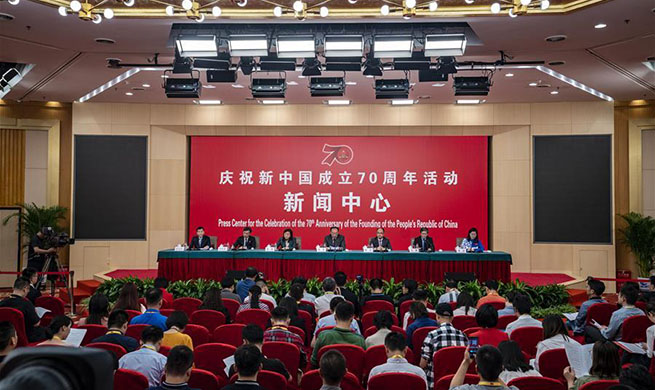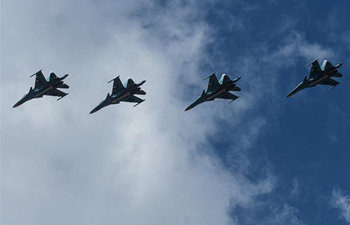NAIROBI Sept. 25 (Xinhua) -- Olympic Games champions have warned it will take more than ordinary strength for Kenyan marathoners to stamp their authority and win midnight marathons at the World Championships in Doha, Qatar.
Patrick Sang, a former Olympian and trainer of world record holder Eliud Kipchoge, said on Wednesday Kenyan runners must brace up for biggest challenge running at night, which will demand them to quickly adjust their bodies, which are used to morning marathons.
"The biggest challenge for athletes running at night will be adjusting their bodies, which are used to morning marathons. They need to compete when their biological clock has not adjusted to the local time zone," Sang told the Olympic Channel.
The women's marathon will be held on Friday night in Doha where Kenya's Edna Kiplagat will be eyeing her third gold in fifth attempt.
Kiplagat, 41, won in Daegu (South Korea) in 2011, Moscow in 2013, was fifth in Beijing in 2015 and settled for silver in London two years ago. She will team up with Dubai marathon champion Ruth Chepngetich and Visiline Jepkesho.
Kiplagat says the main thing for her is to stay focused mentally.
"I don't have any worries on (running at night)," she said. "Every time you are preparing for a race, mental shifts are important to prepare for the opponents you will be running against, or the weather conditions.
World marathon record holder Paul Tergat (2:04.53) however, has downplayed the high humidity and soaring temperatures in Doha saying it does not require any specific training or preparation.
"Depending on where you are in summer, if it's very late, you can still train until 9:00 so it's only a question of a few hours," he said.
"Regardless of whether the weather is -5 degrees or it is 30 degrees, it doesn't matter, so long as you have trained well and you are ready, you can run at anytime, anywhere, given the conditions."
The athletes have been subjected to numerous anti-doping test to rule out cheats.
Last year, IAAF determined that Kenya together with Ethiopia, Belarus and Ukraine belong to a specific group of "risk countries", for which special rules apply. One of the criteria is that athletes from these countries must have passed at least three "out-of-competition tests" and one doping test in-competition to be allowed to participate in the World Cup or Olympics.




